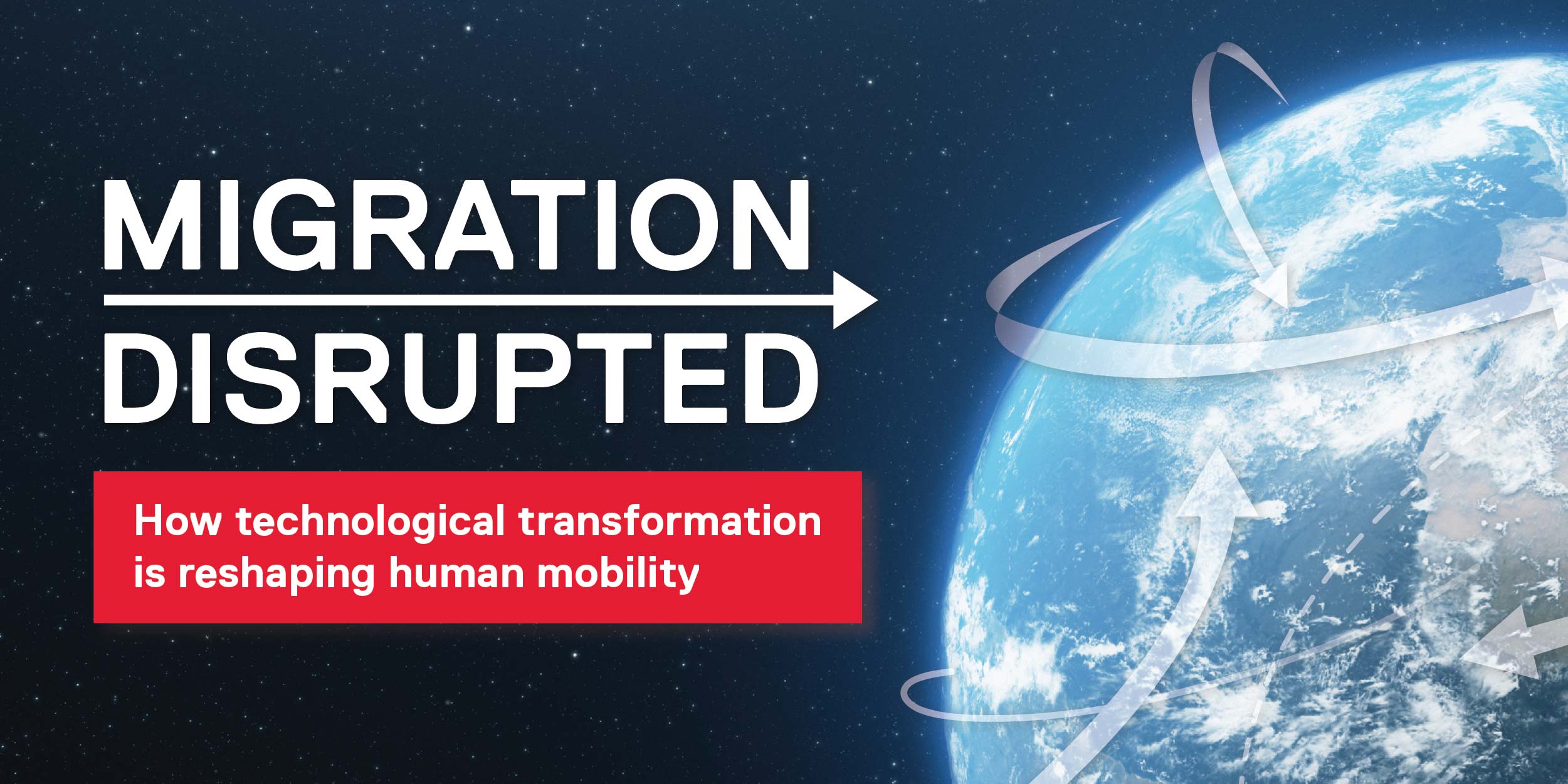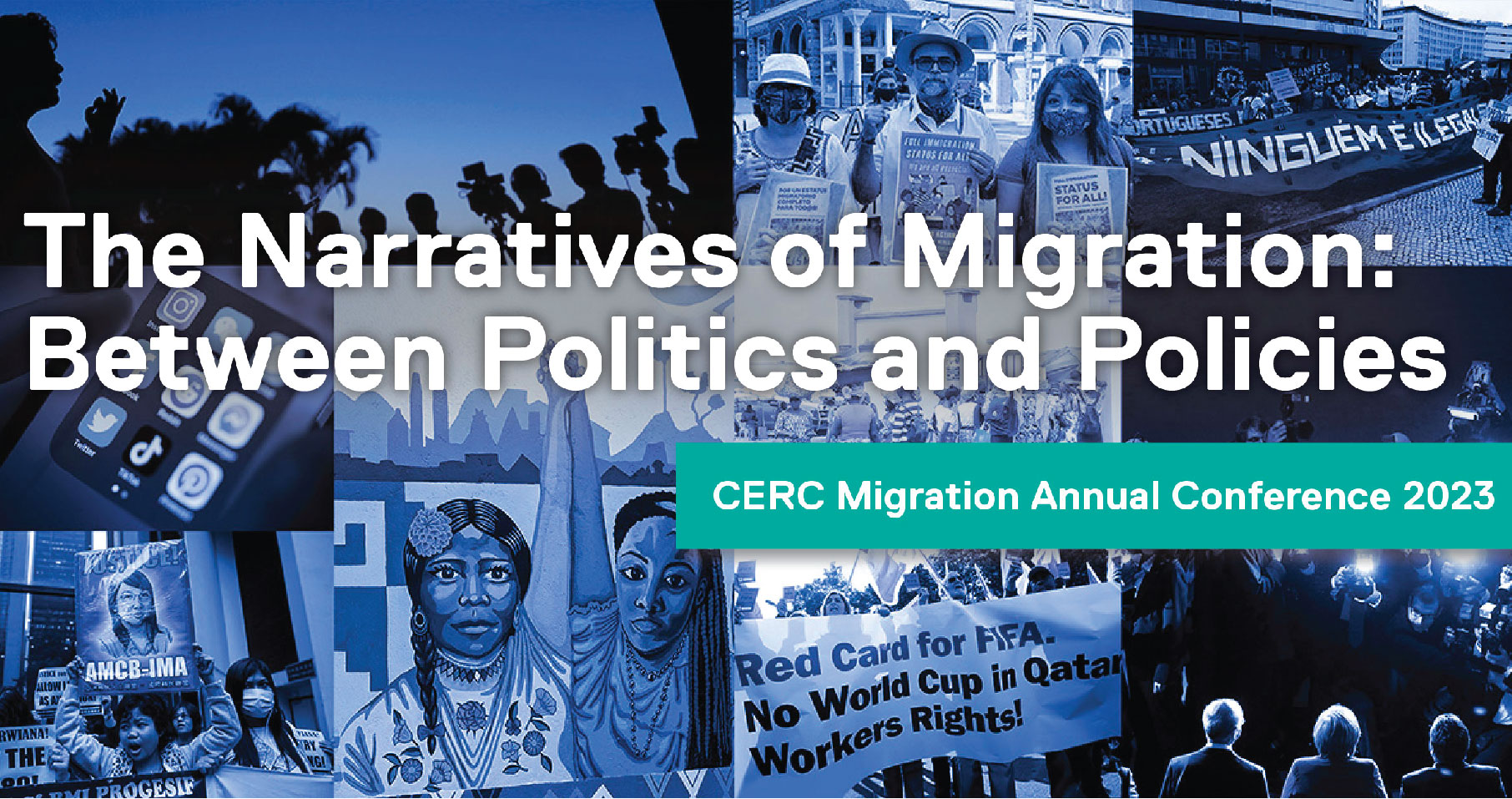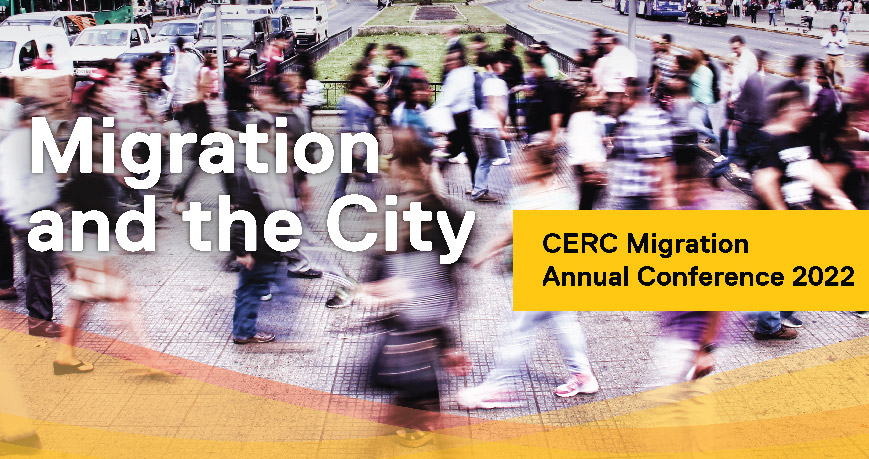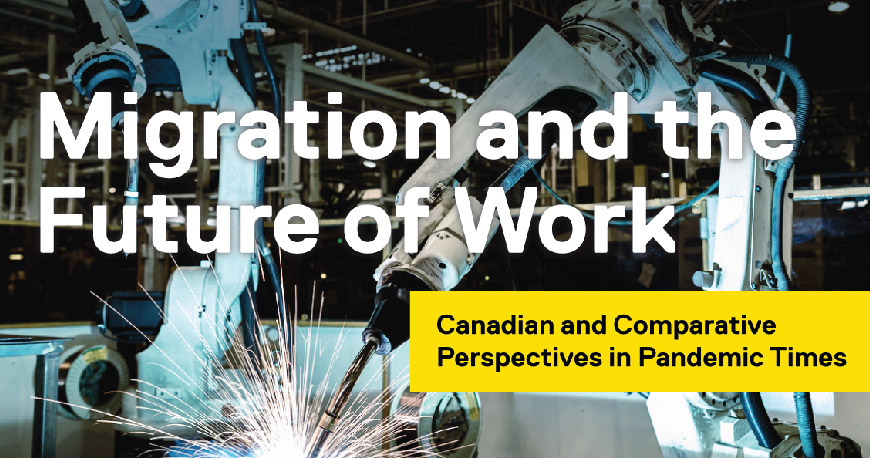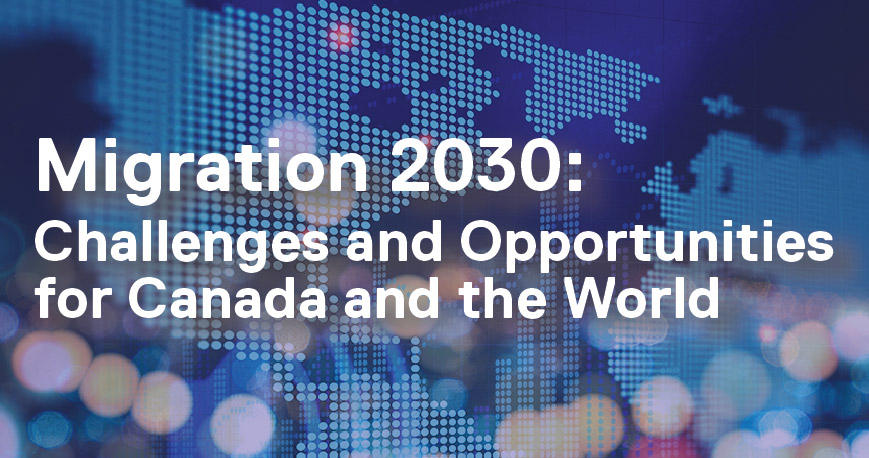A conference organized by TMU research programs CERC Migration and Bridging Divides
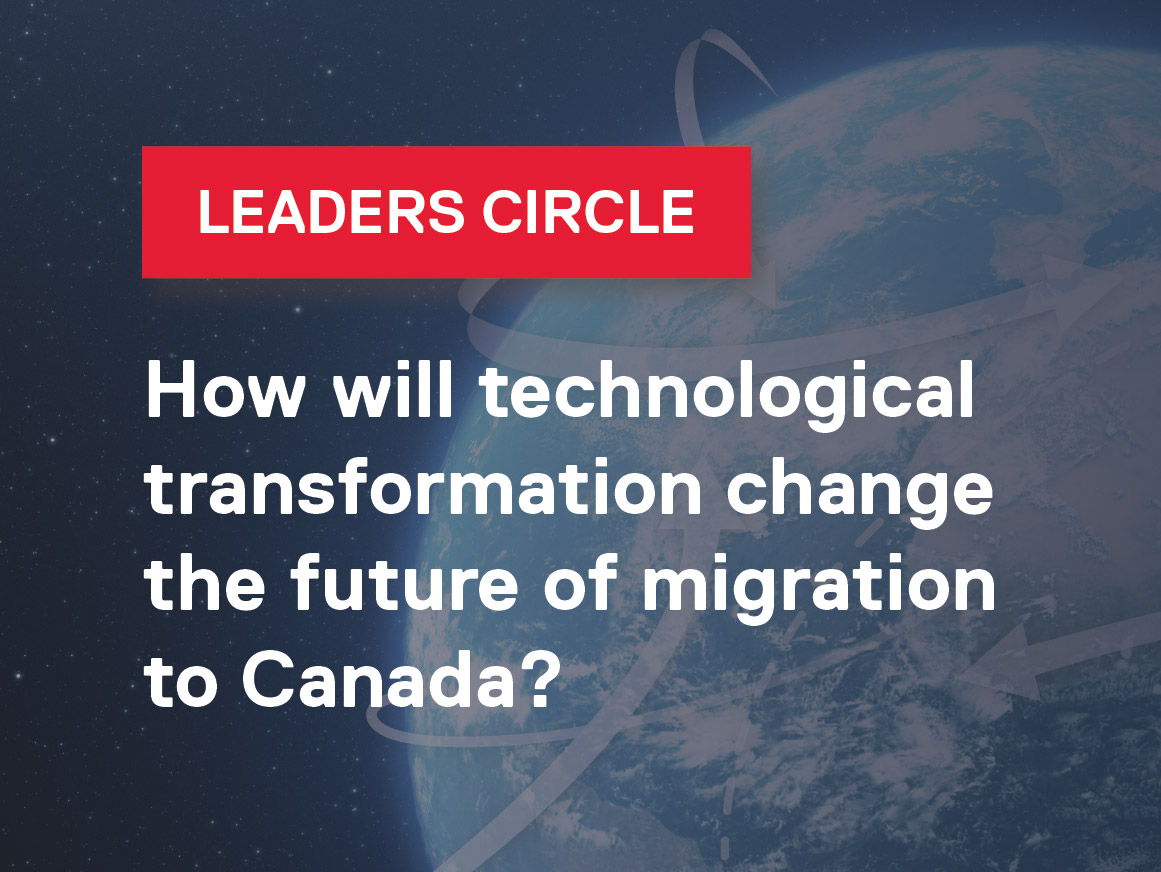
CONFERENCE LAUNCH EVENT
How will technological transformation change the future of migration to Canada?
May 7, 2024, 5-6:30 PM EDT
Reception 6:30-7:30 PM
Overview
Advanced digital technologies (ADTs) are increasingly pervasive in society and the economy both in Canada and around the world, bringing new opportunities and challenges. These technologies are particularly relevant to recently arrived refugees and migrants struggling to find their footing in a new society, and the proliferation of ADTs and their impacts on jobs across the economy also contribute to the structural inequalities that settled migrants and racialized minorities face in their daily lives.
However, new technologies can support the efficient provision of services to new migrants, including employment orientation or language education. They can also open new opportunities for employement, such as entry-level jobs with digital platforms or digital onboarding and remote work opportunities. ADTs facilitate staying connected both locally and transnationally with friends and family. They also provide important channels for social and political participation through online engagement. And yet, these same technologies may create new divides or widen old ones, perpetuating long-term systemic inequities related not only to immigration status but also to race, ethnicity, class, religion, gender, sexual identity, age, education, language, profession or place of residence. Digital literacy, language skills and access to high-quality Internet and smart devices differ significantly among different populations, while ADTs and related algorithms (e.g., for service provision or recruitment) incorporate past data usage and risk perpetuating negative biases. Information technologies may also have polarizing impacts on civic and political participation; while they may facilitate communication and engagement, they cant also create echo chambers and fuel division and even extremism.
This conference brings together an interdisciplinary and inter-sectoral group of researchers and leaders from Canadian and international civil society, business and government to reflect on the implications of the rapid development of ADTs for migrant integration in Canada and around the world. Our kickoff panel on May 7, 2024, will ask how technological transformation will shape the future of migration in Canada, and our four plenary sessions on May 8 and 9 will engage four main themes:
- Who belongs? How do ADTs impact migration, citizenship and democracy?
- Help or hindrance? What potential do ADTs have to address the inequities of health care in Canada and around the world?
- How can social and technological infrastructures shape the experience of migrant integration and foster inclusive cities?
- What is technology’s promise for the future of migrant workers?

About the conference
The conference is co-convened by Anna Triandafyllidou, Canada Excellence Research Chair in Migration and Integration, and Ebrahim Bagheri, Canada Research Chair in Social Information Retrieval and NSERC Industrial Research Chair in Social Media Analytics, both are with Toronto Metropolitan University and are the scientific co-directors of Bridging Divides.
In the spirit of collaboration and to create maximum opportunities for learning and networking, this year’s conference features a mix of panel discussions, audience Q&As, fireside chats, and time for group reflection at your table.
Program
Tuesday, May 7, 2024
Wednesday, May 8, 2024
Session 1
Session 2
Thursday, May 9, 2024
| 8:30-9:15 AM EDT | Continental breakfast |
Session 3
Session 4

